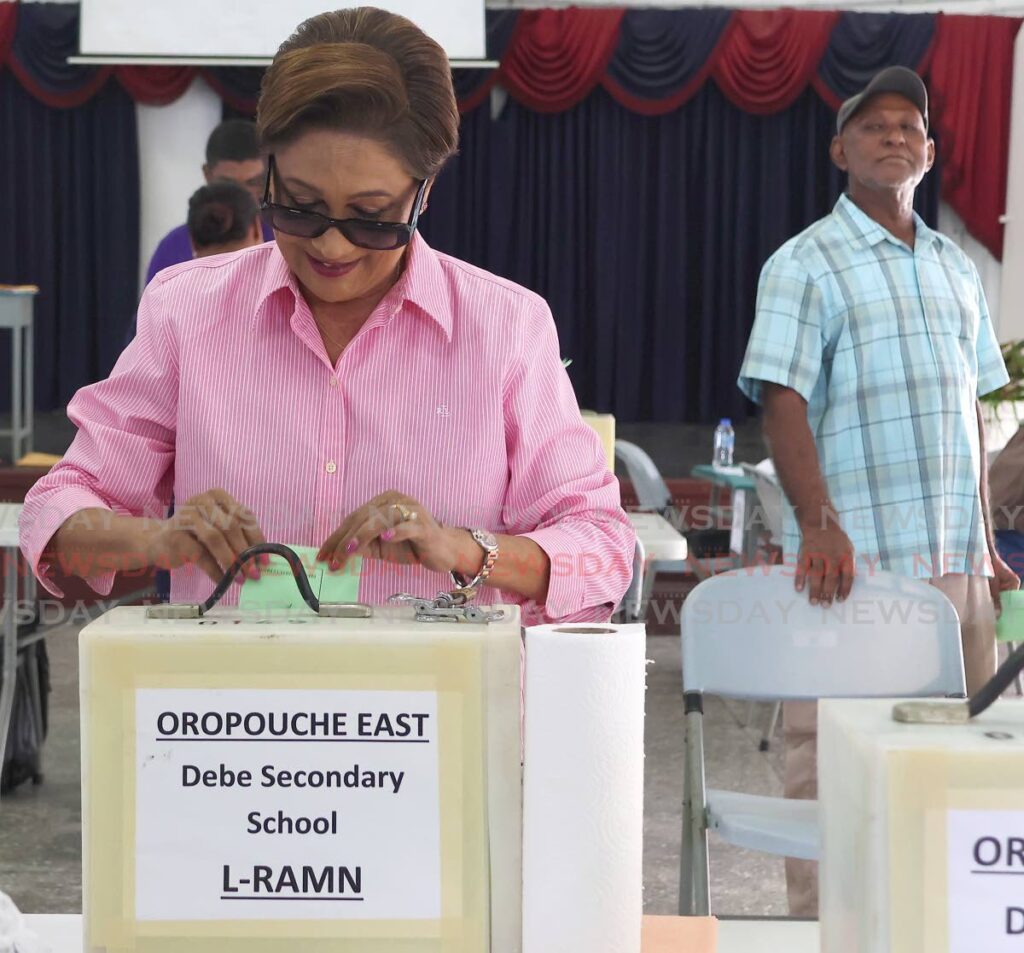To general election

THE RESULTS of the UNC internal election and two by-elections this week map out a clear blueprint for what we can expect in the next general election.
Unless there is some seismic development, we are in store for a repeat of history, with the same figures vying for Whitehall as in 2015 and 2020.
Whether it is a rematch the population will be enthusiastic about, however, remains to be seen.
Kamla Persad-Bissessar’s position as political leader of the UNC was not, formally, up for grabs in the exercise carried out by her party on June 15. But she is the clear winner. There is no doubt about the widespread support she enjoys in the UNC. The unequivocal victory of the slate she endorsed is not to be dismissed.
Though Ms Persad-Bissessar, 72, and her party surrogates found cause for deep dismay in the campaign, there is no denying the dissident MPs inadvertently did her a favour.
She enters the next election cycle on a more solid footing. Any doubts have been dispelled by a margin of 213,651 to 62,186 votes.
Even the fact that about 23 per cent of voters supported candidates not endorsed by her is a gift: this minority presence paints a picture of a party with a healthy tolerance for disagreement, and no maximum leader suppressing views.
At the same time, the losing slate will be tempted – as some of its figures already have been – to see victory in defeat by saying they represent a key faction.
Less difficult to accept is the mixed picture thrown up by the two by-elections of June 17.
The UNC won the district of Quinam/Morne Diablo in Penal/Debe, while the PNM won the district of Lengua/Indian Walk in Princes Town.
In 2022, the parties were left in a dead heat in the latter. The initial results this week suggested the PNM won more support, outpacing the UNC by about 1,986 to 1,394 votes.
The roles, if any, played by the UNC’s internal poll exercise on Saturday, the Prime Minister’s direct campaigning, the war waged in court over the fate of a single ballot cast in the district, as well as the management of the timing of the by-elections, are for historians to assess.
There are enough questions to add more grist to the mills of UNC loyalists who believe the net impact of the dissidents is to damage the UNC in election races. The inverse might also be true.
While olive branches have now been offered and some failed slate members speak of having “no fear” going forward, the reality is they have not won majority support. They face axing whenever the next election bell is rung. And the country will go into that poll still deeply divided.

Comments
"To general election"